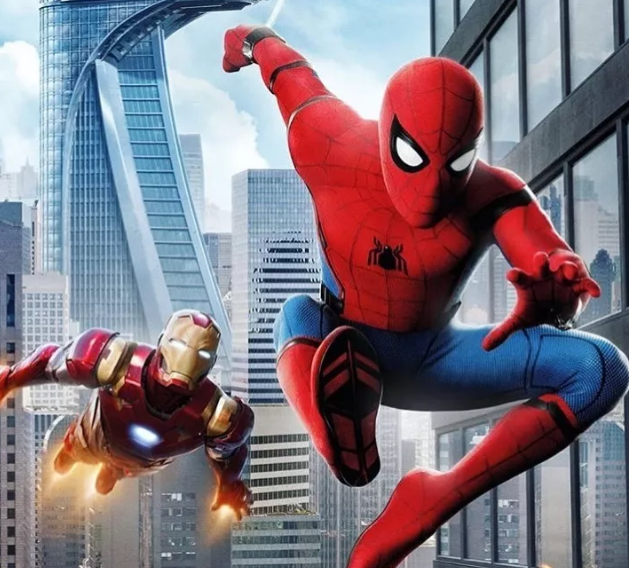Dialogue 1
Mark: Well, Jingjing, we lost another celebrity.
馬克: 京晶,我們又失去了一位名人。
Jingjing: These past few years, so many famous people have passed away.
京晶: 最近幾年有好多名人都去世了。
Jingjing
Mark: I'm thinking about Stan Lee.
馬克: 我想到了斯坦·李。
Jingjing: He's the creator of Marvel Comics, right?
京晶: 他是漫威漫畫的創(chuàng)作者,對(duì)吧?
Mark: Yeah, he came up with lots of superheroes, like Spider Man and the Fantastic Four.
馬克: 是啊,他創(chuàng)造了很多超級(jí)英雄,比如蜘蛛俠和神奇四俠。
Jingjing: Are you into comic books, Mark?
京晶: 馬克,你喜歡看漫畫嗎?
Mark: Yeah, I used to have a massive collection, and still have a few.
馬克: 喜歡啊,我以前收集的書可多了,現(xiàn)在也還留著一些。
Jingjing: I've seen a few of the movies. They're pretty spectacular and exciting. I've enjoyed the ones I watched in the cinema. I guess that's the way to see big movies.
京晶: 我看過幾部漫威的電影,場(chǎng)面非常壯觀、情節(jié)扣人心弦。我喜歡去電影院看的那幾部,我覺得這才是看大片的正確方式。
Mark: I agree. Actually, when I was a teenager, there weren't so many good superhero films. There were the original Superman movies with Christopher Reeve, that came out when I was a kid, and then not so much until Spider Man with Toby Maguire.
馬克: 我同意。事實(shí)上,在我的少年時(shí)代,并沒有那么多優(yōu)秀的超級(jí)英雄電影。在我還是個(gè)孩子的時(shí)候,出了克里斯托弗·里夫主演的最早的《超人》系列電影,但后來就沒什么超級(jí)英雄電影了,直到托比·馬奎爾主演的《蜘蛛俠》上映。
Jingjing: Now there are too many to count. I bet Stan Lee was pretty satisfied with the Marvel universe by the time he reached his later years.
京晶: 現(xiàn)在就太多了,都數(shù)不清了。我敢打賭斯坦·李到了晚年,肯定對(duì)他創(chuàng)造出來的漫威宇宙感到非常滿意。
Mark: Yeah. For the longest time, comic books and superheroes were mostly for geeks.
馬克: 是的。有很長(zhǎng)一段時(shí)間,漫畫書和超級(jí)英雄大多是為怪才準(zhǔn)備的。
Jingjing: That's putting it a little harshly.
京晶: 這么說有點(diǎn)刺耳啊。
Mark: So what? I count myself among those geeks. Ask me anything; I could probably tell you.
馬克:那又怎樣? 我把自己也算在那些怪才之中。你可以隨便問我關(guān)于漫威的事情,我都能告訴你。
Jingjing: Ok. How did Spider Man get his powers?
京晶: 好吧。蜘蛛俠是怎么獲得超能力的?
Mark: He was bitten by a radioactive spider.
馬克: 他被一只放射性蜘蛛咬了。
Jingjing: What about Superman?
京晶: 那超人呢?
Mark: He comes from the planet Krypton, which has stronger gravity. In the early stories, he could only do stuff like run faster and jump really high.
馬克:他來自氪星球,那里的地心引力比地球強(qiáng)。在早期的故事中,他的超能力僅限于跑得比較快,跳得比較高而已。
New words : 習(xí)語短語
comic 連環(huán)漫畫
a strip or a book, with a story told in panels of cartoon pictures
the _____ universe ....宇宙
a set of characters and stories so large that many production companies and different authors have made contributions (i.e. the Star Wars universe, the Star Trek universe, the Harry Potter universe, NOT the Disney Universe or the Spider Man universe)
電影宇宙是一種共享世界觀的電影概念,電影宇宙不僅僅指系列電影,而是可以包含多個(gè)系列的電影。所謂電影宇宙,當(dāng)然不是擁有幾部續(xù)集電影便可擔(dān)此稱號(hào),獨(dú)特的世界觀、無限延伸的故事體系、龐雜的人物關(guān)系,都是成為電影宇宙的必要不充分條件。
geek 癡迷者,怪才
someone with a lot of knowledge in only a few areas, and typically not such good interpersonal skills
極客是美國俚語“geek”的音譯。Geek是新的精英亞文化群,是一群愛好新事物的、以技術(shù)為中心的、同時(shí)對(duì)社會(huì)懷有深刻不滿的地下人類。Geek們是那些依靠計(jì)算機(jī)技術(shù)結(jié)合成的社會(huì)性人群,他們把大量社交時(shí)間花費(fèi)在電腦網(wǎng)絡(luò)上,他們的娛樂是每天到處尋找新奇的東西,比如各種軟件、書籍、MP3、電影之類的,他們?cè)诟鞣NBBS里發(fā)表代表個(gè)人觀點(diǎn)的帖子,有些高級(jí)Geek則以編寫共享軟件為樂事。
Dialogue 2
Jingjing: So, Mark, did you collect mostly superhero comics?
京晶: 馬克,你收集了近乎所有的超級(jí)英雄漫畫嗎?
Mark: Not really. There were only two or three titles that I collected the whole series.
馬克: 并沒有。我只收集了兩三個(gè)故事的整個(gè)系列。
Jingjing: What were those?
京晶: 都是什么故事?
Mark: One was called the Preacher. It was about a guy who could sometimes speak in a way that would make people do anything he told them to do. His power was called the word.
馬克: 一個(gè)叫《傳教士》,講的是一個(gè)人有時(shí)用說話的方式可以讓其他人聽從他的指揮。他的超能力叫做“詞語”。
Jingjing: Wow. That sounds kinda scary.
京晶: 哇,這聽起來有點(diǎn)嚇人。
Mark: Luckily, he was a good guy. And he hardly ever used his power.
馬克: 幸運(yùn)的是,他是個(gè)好人。而且他幾乎從不使用他的超能力。
Jingjing: What about the others in your collection?
京晶: 你收藏的其他作品是什么?
Mark: Another one was Astro City. It was about a city that had lots of superheroes; and the series took a deeper look at what society would be like if there really were superheroes flying around.
馬克:另一部作品叫《阿斯特羅城》。講的是一座城市里聚集著很多超級(jí)英雄;這個(gè)系列更深入地探討了如果一個(gè)社會(huì)真的有許多超級(jí)英雄每天飛來飛去,這個(gè)社會(huì)會(huì)變成什么樣子。
Jingjing: That sounds interesting. I'm sure most writers have tried to do that, more or less.
京晶: 聽起來很有趣。我相信大多數(shù)漫畫作家都曾或多或少地嘗試這樣構(gòu)想過。
Mark: Yeah, Stan Lee did a better job than writers before him. Anyway, writing makes all the difference in a comic, I think; and art adds to it.
馬克: 是的,斯坦·李比在他以前的漫畫作家創(chuàng)作得更出色。無論如何,我認(rèn)為在漫畫創(chuàng)作中,寫作構(gòu)思是至關(guān)重要的; 同時(shí)藝術(shù)錦上添花。
Jingjing: Hmm. I'll have to pop back into the office soon. But, before I go, I want to hit you with one more trivia question. That ok?
京晶:呀,我得趕回辦公室了。但是在我走之前,我想再問你一個(gè)小問題。可以嗎?
Mark: Of course. Try me.
馬克: 當(dāng)然。盡管問。
Jingjing: What was Spider Man's secret identity?
京晶: 蜘蛛俠秘密身份(正常人身份)是什么?
Mark: Peter Parker. That's easy!
馬克:彼得·帕克。這太簡(jiǎn)單了!
Jingjing: Ok, then. Here's a harder one: Who was the actor who played Black Panther?
京晶:好吧,還有一個(gè)更難回答的問題: 扮演黑豹的演員是誰?
Mark: Chadwick Boseman.
馬克: 查德維克·博斯曼。
Jingjing: All right. I'll try to think of a tougher question next time I see you.
京晶: 好吧。下次見你,我會(huì)試著想出一個(gè)更難的問題。
New words : 習(xí)語短語
title 漫畫中的人物頭銜
with comics, this is typically the name of the main character (the superhero)
series 系列
a numbered set of books
trivia 大多數(shù)人不知的細(xì)節(jié)知識(shí)
pieces of knowledge that most people don't have
secret identity 秘密身份
(日常生活中,看上去與普通人無異,卻有超能力的人以普通人掩蓋著他們的真實(shí)身份)the person in everyday life, who is really the same as the superhero, but is not known to have any super powers
adv. 嚴(yán)厲地;刺耳地;粗糙地











